Abarth 500 595 695 vs BYD Seal U – Performance, range & efficiency compared
Compare performance, boot capacity, efficiency and price at a glance.
Find out which car is the better choice for you – Abarth 500 595 695 or BYD Seal U?
Costs and Efficiency:
Price and efficiency are key factors when choosing a car – and this is often where the real differences emerge.
Abarth 500 595 695 has a hardly perceptible advantage in terms of price – it starts at 32600 £, while the BYD Seal U costs 34300 £. That’s a price difference of around 1715 £.
In terms of energy consumption, the advantage goes to the Abarth 500 595 695: with 17.10 kWh per 100 km, it’s somewhat more efficient than the BYD Seal U with 19.90 kWh. That’s a difference of about 2.80 kWh.
As for range, the BYD Seal U performs decisively better – achieving up to 500 km, about 235 km more than the Abarth 500 595 695.
Engine and Performance:
Under the bonnet, it becomes clear which model is tuned for sportiness and which one takes the lead when you hit the accelerator.
When it comes to engine power, the BYD Seal U has a significantly edge – offering 324 HP compared to 155 HP. That’s roughly 169 HP more horsepower.
In acceleration from 0 to 100 km/h, the BYD Seal U is slightly quicker – completing the sprint in 5.90 s, while the Abarth 500 595 695 takes 7 s. That’s about 1.10 s faster.
In terms of top speed, the BYD Seal U performs somewhat better – reaching 180 km/h, while the Abarth 500 595 695 tops out at 155 km/h. The difference is around 25 km/h.
There’s also a difference in torque: BYD Seal U pulls decisively stronger with 550 Nm compared to 235 Nm. That’s about 315 Nm difference.
Space and Everyday Use:
Beyond pure performance, interior space and usability matter most in daily life. This is where you see which car is more practical and versatile.
Seats: BYD Seal U offers a bit more seating capacity – 5 vs 4.
In curb weight, Abarth 500 595 695 is clearly perceptible lighter – 1410 kg compared to 1940 kg. The difference is around 530 kg.
In terms of boot space, the BYD Seal U offers decisively more room – 552 L compared to 185 L. That’s a difference of about 367 L.
In maximum load capacity, the BYD Seal U performs convincingly better – up to 1465 L, which is about 915 L more than the Abarth 500 595 695.
When it comes to payload, BYD Seal U barely noticeable takes the win – 410 kg compared to 385 kg. That’s a difference of about 25 kg.
Who wins the race?
The BYD Seal U proves to be outperforms in nearly all aspects and therefore becomes our DriveDuel Champion!
BYD Seal U is the better all-rounder in this comparison.
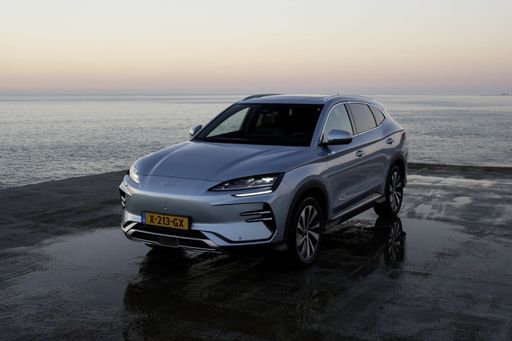 @ BYD Auto / BYD Global Media
@ BYD Auto / BYD Global Media
BYD Seal U
Abarth 500 595 695
The Abarth 500, particularly in its 595 and 695 renditions, captures the spirit of Italian motoring with its compact yet aggressive design. Known for its lively performance and distinctive styling, this little powerhouse is a joy to drive, offering an engaging experience that appeals to enthusiasts. With its rich motorsport heritage, the Abarth 500 embodies the essence of fun and excitement on both the streets and the race track.
details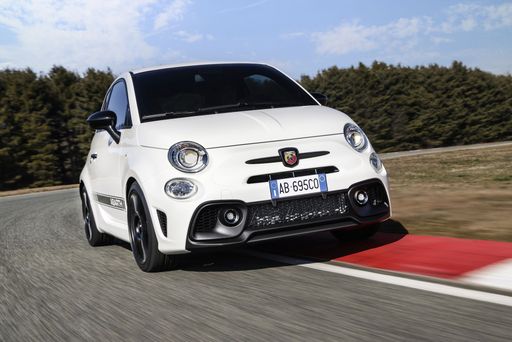 @ Abarth / Stellantis Media
@ Abarth / Stellantis Media
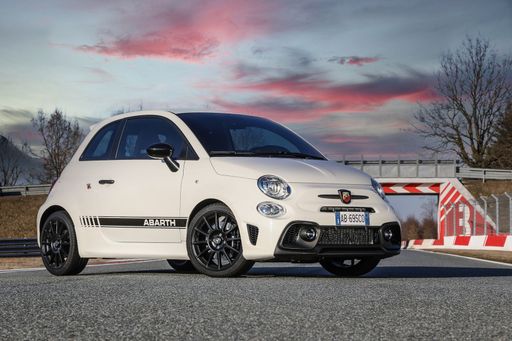 @ Abarth / Stellantis Media
@ Abarth / Stellantis Media
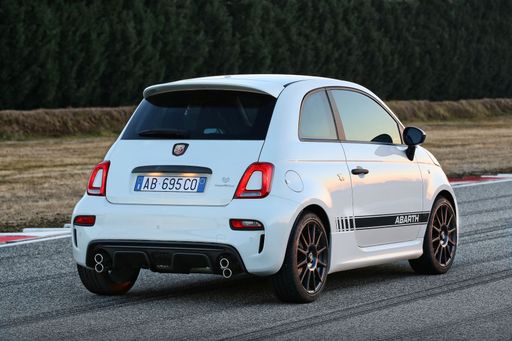 @ Abarth / Stellantis Media
@ Abarth / Stellantis Media
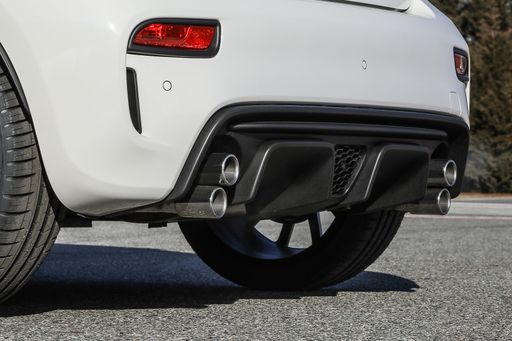 @ Abarth / Stellantis Media
@ Abarth / Stellantis Media
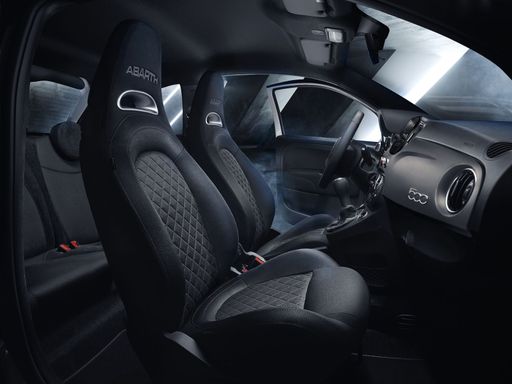 @ Abarth / Stellantis Media
@ Abarth / Stellantis Media
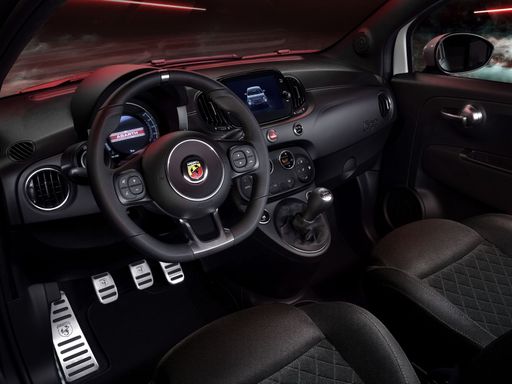 @ Abarth / Stellantis Media
@ Abarth / Stellantis Media
BYD Seal U
The BYD Seal U presents itself as a sophisticated addition to the electric vehicle market, blending sleek design with cutting-edge technology. Its modern aesthetic is complemented by a spacious interior, offering both comfort and functionality for drivers and passengers alike. With advanced features prioritising sustainability and performance, it represents a bold step forward in eco-friendly motoring.
details @ BYD Auto / BYD Global Media
@ BYD Auto / BYD Global Media
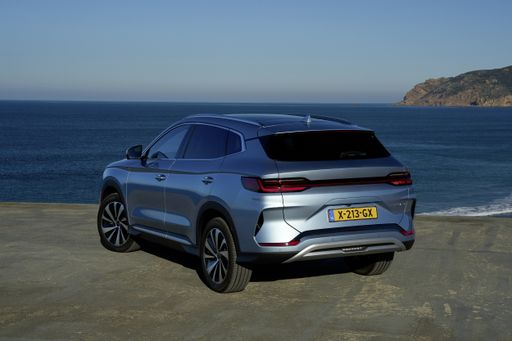 @ BYD Auto / BYD Global Media
@ BYD Auto / BYD Global Media
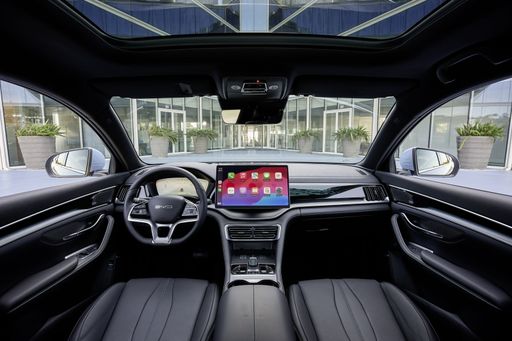 @ BYD Auto / BYD Global Media
@ BYD Auto / BYD Global Media
 @ Abarth / Stellantis Media
@ Abarth / Stellantis Media
|
 @ BYD Auto / BYD Global Media
@ BYD Auto / BYD Global Media
|
|
|
|
Costs and Consumption |
|
|---|---|
|
Price
32600 - 39400 £
|
Price
34300 - 39800 £
|
|
Consumption L/100km
-
|
Consumption L/100km
0.4 - 1.2 L
|
|
Consumption kWh/100km
17.1 - 18.8 kWh
|
Consumption kWh/100km
19.9 - 20.5 kWh
|
|
Electric Range
242 - 265 km
|
Electric Range
70 - 500 km
|
|
Battery Capacity
37.80 kWh
|
Battery Capacity
-
|
|
co2
0 g/km
|
co2
0 - 26 g/km
|
|
Fuel tank capacity
-
|
Fuel tank capacity
60 L
|
Dimensions and Body |
|
|---|---|
|
Body Type
Hatchback
|
Body Type
SUV
|
|
Seats
4
|
Seats
5
|
|
Doors
3
|
Doors
5
|
|
Curb weight
1410 - 1435 kg
|
Curb weight
1940 - 2147 kg
|
|
Trunk capacity
185 L
|
Trunk capacity
425 - 552 L
|
|
Length
3673 mm
|
Length
4775 - 4785 mm
|
|
Width
1682 mm
|
Width
1890 mm
|
|
Height
1518 mm
|
Height
1668 - 1670 mm
|
|
Max trunk capacity
550 L
|
Max trunk capacity
1440 - 1465 L
|
|
Payload
370 - 385 kg
|
Payload
410 kg
|
Engine and Performance |
|
|---|---|
|
Engine Type
Electric
|
Engine Type
Plugin Hybrid, Electric
|
|
Transmission
Automatic
|
Transmission
Automatic
|
|
Transmission Detail
-
|
Transmission Detail
CVT, Reduction Gearbox
|
|
Drive Type
Front-Wheel Drive
|
Drive Type
Front-Wheel Drive, All-Wheel Drive
|
|
Power HP
155 HP
|
Power HP
218 - 324 HP
|
|
Acceleration 0-100km/h
7 s
|
Acceleration 0-100km/h
5.9 - 9.6 s
|
|
Max Speed
155 km/h
|
Max Speed
170 - 180 km/h
|
|
Torque
235 Nm
|
Torque
300 - 550 Nm
|
|
Number of Cylinders
-
|
Number of Cylinders
4
|
|
Power kW
114 kW
|
Power kW
160 - 238 kW
|
|
Engine capacity
-
|
Engine capacity
1497 - 1498 cm3
|
General |
|
|---|---|
|
Model Year
2023
|
Model Year
2024
|
|
CO2 Efficiency Class
A
|
CO2 Efficiency Class
B, A
|
|
Brand
Abarth
|
Brand
BYD
|
Is the Abarth 500 595 695 offered with different drivetrains?
The Abarth 500 595 695 is offered with Front-Wheel Drive.
The prices and data displayed are estimates based on German list prices and may vary by country. This information is not legally binding.
